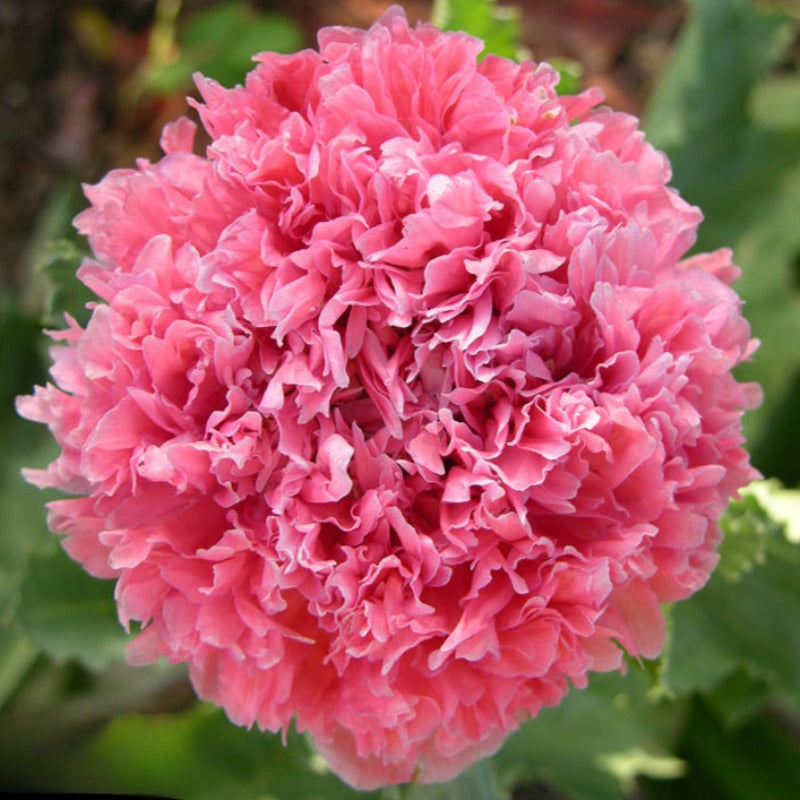- Historical context: The Bombast Rose Peony Poppy is a variety of the Papaver somniferum species, which has been cultivated for centuries for its ornamental, culinary, and medicinal uses.
- Geographical origination: The Papaver somniferum species is native to the eastern Mediterranean region but has been widely cultivated in Europe, Asia, and North America.
- Relevant cultural significance: Poppies have been used symbolically in various cultures, often representing sleep, peace, and death due to their sedative properties and the blood-red color of some varieties.
- Time period of discovery: The cultivation of poppies dates back to at least 5000 BC, as evidenced by archaeological findings in the Swiss lake dwellings.
- Original habitat: Poppies are native to sunny, dry climates and thrive in well-drained soil.
- Notable historical uses: Poppies have been used for their medicinal properties, particularly as a sedative and analgesic. The seeds are also used in baking and cooking.
- Ideal temperature range: Poppies prefer cool to moderate temperatures, with an ideal range of 50-70°F (10-21°C).
- Soil type: They prefer well-drained soil with a pH between 6.0 and 7.5.
- Sunlight requirements: Poppies need full sun to grow properly.
- Watering needs: Water regularly, but avoid overwatering as this can lead to root rot.
- Planting season: Poppies should be planted in the early spring or fall.
- Germination time: Seeds typically germinate in 10-20 days.
- Growth cycle duration: Poppies have a growth cycle of about 120 days from planting to seed maturity.
- Common pests and diseases: Poppies can be affected by aphids, powdery mildew, and gray mold.
- Companion planting advice: Poppies do well with other sun-loving, drought-tolerant plants such as lavender, rosemary, and sage.
- Common challenges and solutions: Overwatering and poor drainage are common challenges. Ensure the soil is well-draining and avoid overwatering.
- Nutritional values: Poppy seeds are rich in fiber, healthy fats, and several essential minerals, including calcium, iron, magnesium, and zinc.
- Health benefits: Poppy seeds may aid digestion, improve skin health, and provide relief from constipation.
- Culinary uses: Poppy seeds are used in a variety of dishes, including pastries, breads, salads, and sauces.
- Medicinal uses: Historically, poppies have been used for their sedative and analgesic properties.
- Other unique advantages: The Bombast Rose Peony Poppy is particularly prized for its ornamental value, with its large, double, rose-like flowers adding beauty to any garden.




